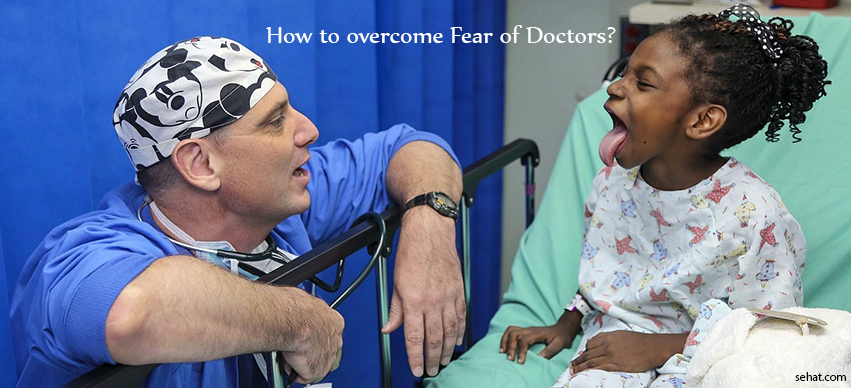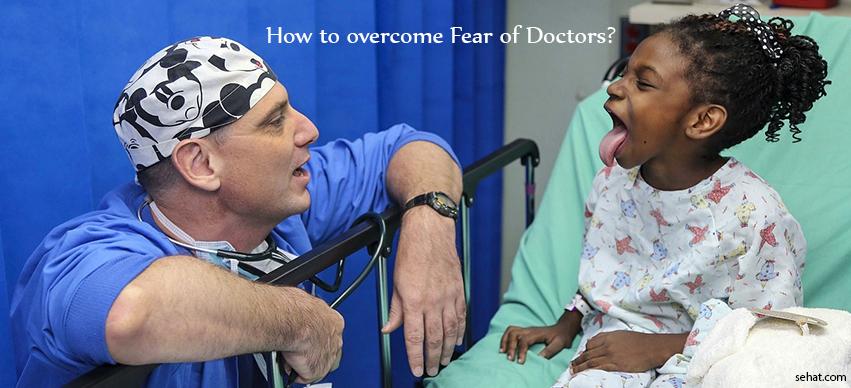Tips To Choose The Best Hospital Uniforms
6 Min Read


Most of us despise out visits to the doctor and hospitals for the fear of hearing bad news, experiencing pain during procedures, undergoing bad diagnosis and hating the repulsive sight of needles and blood. But for many, this overwhelming feeling can go way beyond anxiety and lead to a phobia. Iatrophobia is the fear of doctors, Nosocomephobia is the fear of hospitals and Tomophobia is a fear of surgery or surgical operations. In many cases, the fear of going to the doctor deprives a patient of preventive care and routine screening.
Some of the physical symptoms of Iatrophobia include:
Here are some of the reasons that explain why many people associate fear and anxiety with doctor visits:
There are a number of reasons that most people have a fear associated with hospitals, surgery and procedures:
Here are some tips suggested by experts that will show you how to overcome fear of doctors:
It is important to deconstruct your worry and anxiety. In most cases, people don't have a clear perception of the root cause of the anxiety. Confronting worries and dealing with them rationally makes things much easier for the patient as well as the doctor. For example, men are reluctant to opt for digital rectal exam and colorectal exam because they perceive it as a threat to their sexuality, but these tests are important for early detection of prostate cancer and colorectal cancer. Women tend to budge away from mammogram because they feel embarrassed and uncomfortable. But this test can be life-saving. People have to increase their awareness about the tests and screenings in order to realize that you are not as painful and uncomfortable as anticipated and realize that these brief moments of discomfort fat outweigh its benefits.
Research shows that patients who are aware about a procedure, its level of pain and duration are more relaxed before and during the test or procedure because they are mentally and psychologically prepared for it. Therefore, request your doctor or nurse to give a reasonable description of what the procedure is going to be, how it will feel and how long it will last.
Cognitive behavior therapy is short-term, goal-oriented psychotherapy treatment that takes a practical approach to the situation at hand and changes your pattern of thinking or behavior towards your fear of doctors and medical procedures. It teaches coping techniques that helps to relieve anxiety in just two or three sessions.
Although it is difficult to hand over your health and well being to someone else but having trust and faith in your practitioner is one of the most important part of calming the fear of hospital visits, surgery and procedures. The feeling of fear and anxiety slowly settles once you feel in sync with the people who are trying to help you and it also makes you more confident and in control of the situation. Realize that your practitioner is more capable of this procedure than you are and let him deal with it.
Anxiety and fear will only worsen your medical problem. So, instead of worrying, do the things that will promote healing, like meditation. Meditation will help to clear your mind and increase relaxation. Eating healthy, exercising, spending time with your family and friends and enjoying your hobbies will build your endurance for recovery and take your mind away from the gloom of your medical problem, doctor visits and hospital stays.
Rather than worrying blindly about your condition, do research about your medical issue in order to calm your hospital anxiety and surgery fear. For many of us, knowing exactly what is going to happen makes us feel more in control of the situation and relaxes the mind. In addition, knowing the body's capacity to heal itself after the procedure is very reassuring. Many accounts provide useful tips and ways for recovering from your medical issue which also gives a boost to your confidence.
Fear or phobia of doctors and medical procures can be extremely detrimental for the patient because it can delay diagnosis and treatment and even make the condition worse. If you feel that your fear of doctors is more than just a fear, and it’s verging on to phobia then make it a point to get in touch with a psychiatrists immediately. If you are searching for experienced psychiatrists in Delhi then visit sehat.com. Here, you can get the complete list of physiatrists practicing in and around your location.